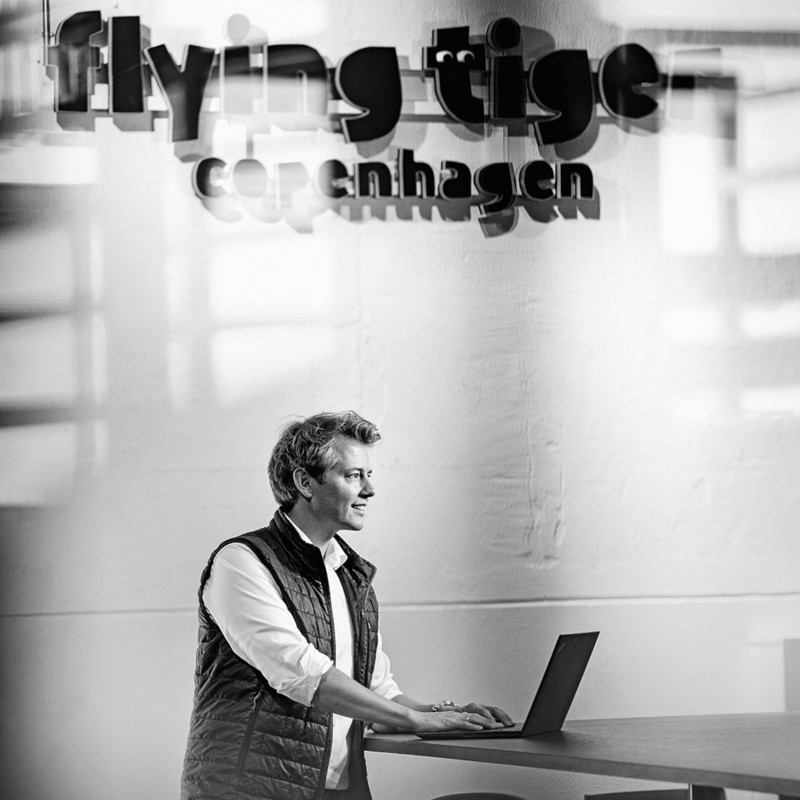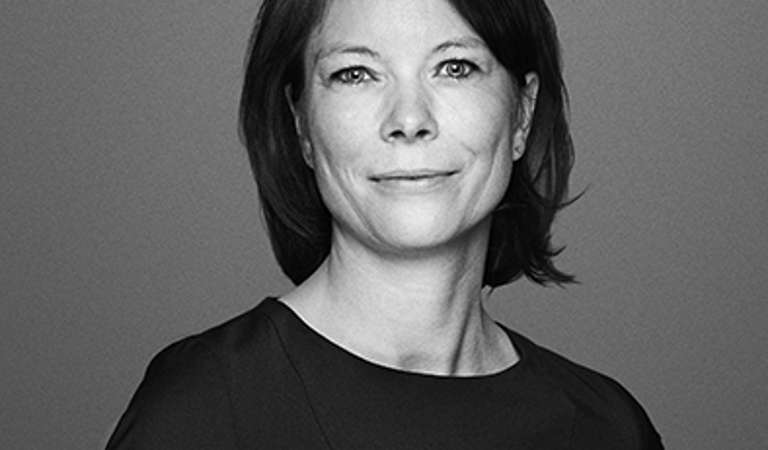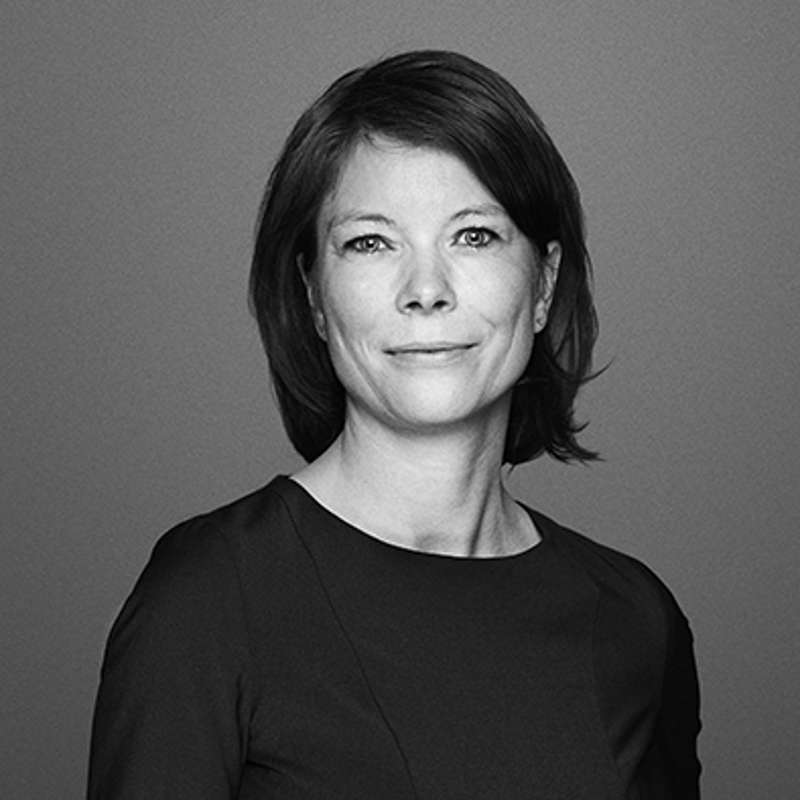Not only has Flying Tiger Copenhagen succeeded in transforming a financial deficit into growth – they are also transforming their global setup from a joint venture into a franchise model. And this involves a rush of work in the Legal department. Therefore, we have had a talk with Lasse Lippert, General Counsel of Flying Tiger Copenhagen, about how to ensure robustness in the legal function with this workload while staying close to the business.
Maybe you know Flying Tiger Copenhagen’s shops from the time when the name was Tiger, and each item had a 10 DKK price tag. Much has happened since then, and now Zebra, the owner of Flying Tiger Copenhagen’s shops, has established shops worldwide. Most recently in the Middle East, where they have opened shops in the United Arab Emirates, Israel, Saudi Arabia, Kuwait, and Quatar – shops that have already become a remarkable success.
It's a fascinating growth journey that has also made the company’s Legal department very busy. Therefore, we have met Lasse Lippert, General Counsel of Flying Tiger Copenhagen, to learn how he ensures that the Legal function can keep pace with the increased volume and complexity of tasks resulting from the rapid growth.
From a joint venture model to own shops and franchising
These are busy days at Flying Tiger Copenhagen, which is right now changing its global expansion model. Previously, they expanded globally and operated their shops by means of a joint venture model with local partners, whereas now Flying Tiger Copenhagen has introduced a setup where they own and operate their European shops by themselves thanks to acquisitions made in recent years. At the same time, they are expanding in new markets through a classic franchise setup.
Before embarking on the global growth journey through franchising, Flying Tiger Copenhagen experienced a turbulent period characterised by serious financial challenges. Challenges that they had almost overcome when Denmark – as well as the rest of the world – closed down in 2020 just when they began to see the first signs of their turnaround having had an impact.
”It was like a douche of cold water when corona hit us,” says Lasse. “But we had a solid legal foundation so corona was primarily an operational and financial challenge.”
Therefore, Flying Tiger Copenhagen could also use the corona period to accelerate some of the turnaround processes – such as the closure of their US activities.
“It was a precondition for our growth strategy that the foundation, i.e. our 800 shops in Europe, was in place. And it really is: Our European shops are profitable, and we have a well-functioning operational concept. And that’s why we can expand worldwide as we are doing right now.”
The transformation into a franchise model has made Flying Tiger Copenhagen change both their internal processes and their contract setup, so that they can encompass the scaling that was the intention behind the growth strategy.
”Over the next ten years, we expect to double our business. So, we need to be certain that we can keep pace and that we are constantly one step ahead,” Lasse says.
A lean franchise concept with global resonance
The franchise transformation has also introduced a novel approach to Flying Tiger Copenhagen’s choice of partners when venturing into a new country. And that has given the Legal function new challenges.
”With our former joint venture setup, we collaborated with rather small, entrepreneurial, local partners. But with the franchise setup, we have begun to collaborate with the greatest and best retailers in the market in each individual country. This means that we are negotiating with a completely different kind of professional counterpart, which also makes it more legally complex,” Lasse says.
That’s why he considers it important that the processes prior to and during negotiations are standardised to the extent possible.
“During the franchise process, we have made template processes for all the steps that we need to go through, for example when entering a new country. We use the exact same templates because we want the processes to be standardised,” says Lasse.
Daily operations of the franchise shops also follow a carefully described model.
“Often the agreements are so detailed and standardised that the colleagues can make them by themselves. Before starting negotiations, we have established legal frames so that, when the agreement in its entirety becomes relevant, much of the work has been made already during the initial commercial negotiations.
“The more precise you are in your operation as regards what to do, the better a franchise concept you can offer your franchisees,” says Lasse and elaborates:
”We have developed a growth concept that works globally and that is, more or less, a franchise concept in-a-box. We have detailed manuals standardising everything from our franchisees’ arrangement of the shops to their handling of daily operations to make it as cost-effective as possible.”
And it seems to have had the intended impact since Lasse says that major international dealers are almost queuing up to collaborate with Flying Tiger Copenhagen. “Major retailers with whom we would like to collaborate are impressed by the level of detail of our retail operation,” says Lasse.
Growth leads to an increase in Legal’s tasks
But how will Lasse and the rest of Flying Tiger Copenhagen ensure that Legal keeps pace with demand when both the volume and complexity of tasks increase because the company is growing while, at the same time, transforming its business model in new markets into franchising?
“That’s indeed a challenge. And things get even more difficult when you must handle tasks that you have not tried before, so that you know neither the scope of the tasks nor where actions would be most efficient. Concerning the accelerated growth, we have solved this acutely through the purchase of external resources until we have an overview of what we need inhouse,” says Lasse and explains that there has also been a change in the distribution of tasks. “The number of legal challenges and transactions related to joint ventures has decreased as we are acquiring and consolidating that part of our business. On the other hand, they have moved to franchising.”
But what does Legal do to ensure that they are not overmanned by the tasks? According to Lasse, part of the answer lies in the creation of a clear and distinct framework vis-à-vis the business as early as possible in the process. For example, in connection with contract negotiations: “Often the agreements are so detailed and standardised that the colleagues can make them by themselves. Before starting negotiations, we have established legal frames so that, when the agreement in its entirety becomes relevant, much of the work has been made already during the initial commercial negotiations,” he says.

Lasse Lippert took up the position as Legal Counsel with Flying Tiger Copenhagen in December 2015 and became the company’s General Counsel on 1 February 2019. When Lasse does not translate complex legislation into an understandable business language, you’ll often find him on the beach with his kitesurfing board or his children. Previously, Lasse has been a lawyer at Gorrissen Federspiel.
Standardised processes create business value
Making Legal’s work easier during contract negotiations is not the only value created by the processes. They also enable Flying Tiger Copenhagen to drive scalable growth as energy-efficient and cost-effective as possible.
“As a Legal function, we create much value by offering homogenous processes and contracts since we make the business future-proof by having as simple a global concept as possible,” says Lasse.
“Our contract setup is as simple as possible, and it is important to me that we deviate as little as absolutely necessary from our defined franchise concept in all the countries that we enter. Of course, we may encounter local requirements necessitating deviations in some countries. But to drive efficient and scalable growth, it is important to us to have one model to follow. If we don’t follow that model, we will just be faced with difficulties in the future because we need to do things differently vis-à-vis our franchisees.”
And our processes have been established on the basis of the idea that they should last for long. “What we sign today is what we’ll have to live with for the next many years, and that’s why it’s important to consider how we want the business to work in the future and how we get there,” explains Lasse.
But it is a balance to find the right relationship between precision and flexibility. “We want to be exact, but we also want to be able to update our concept in the future so that we can develop and keep up to date. And in my view, we have succeeded rather well,” he says.
ESG makes sustainability a legal requirement
Another important agenda faced by Legal is ESG.
”We are faced with a global agenda where sustainability becomes ever more important. And we have a top priority of being as sustainable as possible,” says Lasse explaining that Flying Tiger Copenhagen has focused on this for many years, for example by rethinking both their products and the packaging of their goods.
”Just by having made new packaging strategies, we save many tonnes of plastic every year,” Lasse says proudly. “But we also consider it a business possibility. It is actually part of our strategy to be the most sustainable business in our segment. So, we welcome the demand for transparency. And this also makes demands on the Legal department because sustainability moves from being our intention and strategy to also being a legal requirement subjecting us to regulation.”
Close collaboration with the entire business
No matter whether the talk is about the development of Flying Tiger Copenhagen’s franchise concept or about Legal’s plans to support the ESG agenda of the business, it is evident that Lasse does not think that there is a major line of separation between Legal and the rest of the business.
”We have a very close collaboration with the entire business since the model that we make must fit what our competent colleagues can and will – also in the future,” says Lasse.
And the cross-departmental collaboration has a clear purpose
”The franchise agreements concluded must match the needs of the business to make sense. And I believe that being so close to the business is decisive for the success of the Legal department in terms of the consultancy and assistance offered to our colleagues,” he says and elaborates:
”That’s also why we’ll have even more dedicated inhouse resources. Since it is important that our legal counsels are part of the business.”
Generally, Legal is involved early in the process when something new happens in the business.
And they like this role. “Our colleagues don’t need to make a ticket or read a policy about how to contact us. And our close collaboration with the business is what motivates everybody in our Legal department.”
Before leaving Flying Tiger Copenhagen’s headquarters in Christianshavn, we ask Lasse to tell us what motivates him personally. He thinks for a moment and answers:
”I began working for Flying Tiger Copenhagen when we were opening shops almost every week. I was there when we opened shop no. 1,000, I was there during the entire decline when we experienced serious financial challenges. I was there during corona and our entire turnaround, and I am here now – with a new franchise concept and growth. The chapters being written about Flying Tiger Copenhagen’s story right now are very fascinating, and it feels great to be a co-writer. Especially, because Legal helps establish the framework for what will hopefully be a successful story and for what Flying Tiger Copenhagen is in ten years.”
Read this and other articles in our magazine Content here (in Danish).

Does your company need Legal sparring?
We at Basico are ready to help you – no matter whether you need extra resources for your Legal function or whether you are faced with major organisational changes and need sparring about how to get the Legal framework in place.

 en
en
 da
da



